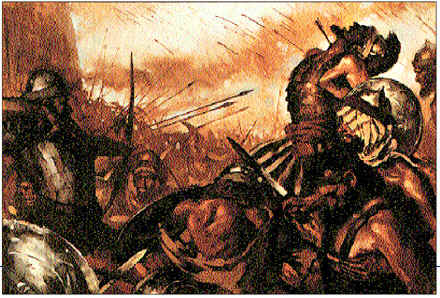When I began reading The Assyrian by Nicholas Guild, I chuckled to myself.
The book is narrated by Tiglath, the son of Sannecherib King of Ashur.
I found it funny that unless one is a major in ancient history, only frum schoolchildren will recognize that name. My mind automatically piped, "The one who sent the 10 tribes into exile."
The book does not deal with that detail at all. It dismisses the Hebrews as an inconsequential blip in the grand rule of Sannecherib.
The author is scrupulous in how he writes from the point of view of an ancient Assyrian; in one amusing scene, the narrator meets with a nation of nomadic horsemen, and describes the odd garments they wear while never using the word "pants."
And so, when he describes what time of year certain incidents occur, he uses the Assyrian months of the year: Nisan, Iyyar, Siban, Tammuz, Ab, Tisri, Marcheshwan, Kisleb, Tebet, Shebat. As a frum Jew, I knew what time of year he meant, even if he didn't necessarily clarify.
The capitol city of Ashur is Niniveh. We know that one, too.
Apparently, "Assyria" is the Greek name for Ashur, as there is no "sh" in that language. So the author always refers to the nation as "Ashur" in the book, not "Assyria."
The book itself has its fallacies; the women, for instance, are all very disappointing depictions. The only lovely female is the narrator's mother, while the rest are manipulating, plotting, oversexed harpies. I expected better of a book written in 1987.
However, the rest of the tome overcomes that lack. It's over 500 pages, and I can't believe I managed to finish it. And there's a sequel.
The book says—and Google backs it up—that Sannecherib died at the hands of his own sons. Not a pleasant end.
But what I marveled at is how no one today is familiar with the ancient empire of Ashur. They are barely aware of Egypt, Babylon, Persia, Hellenization, and Rome.
Yet Jews are. Jews are one of the few continuous threads throughout the ancient world—that while we were dismissed as a nothing people of barely any consequence in the grand scheme of great conquests, we are still freakin' here.
We sing Maos Tzur, listing all of our oppressors, and we are the only ones who remember them. We remember them because how else can we marvel at our survival? We are here. They are not. No other nation/religion can claim our longevity.
*Mind blown*

